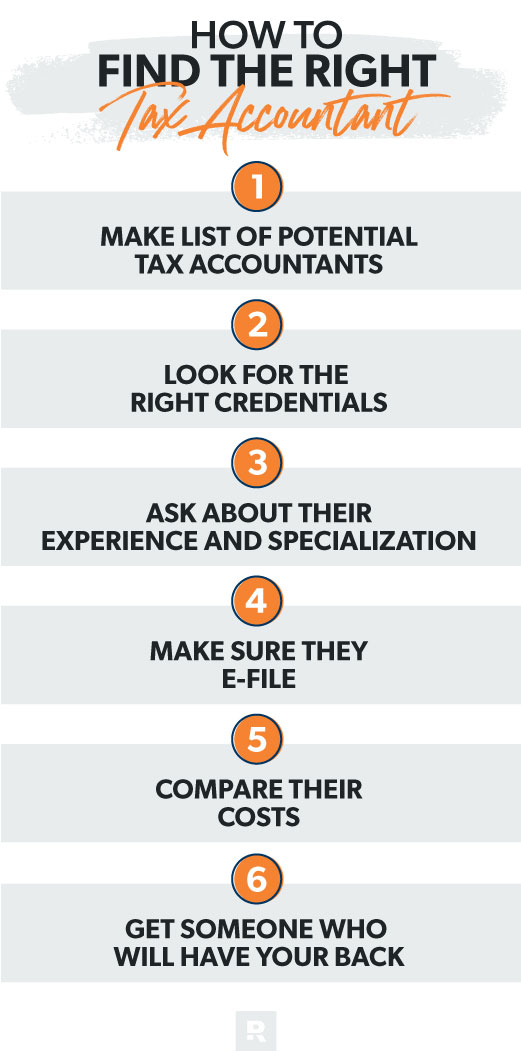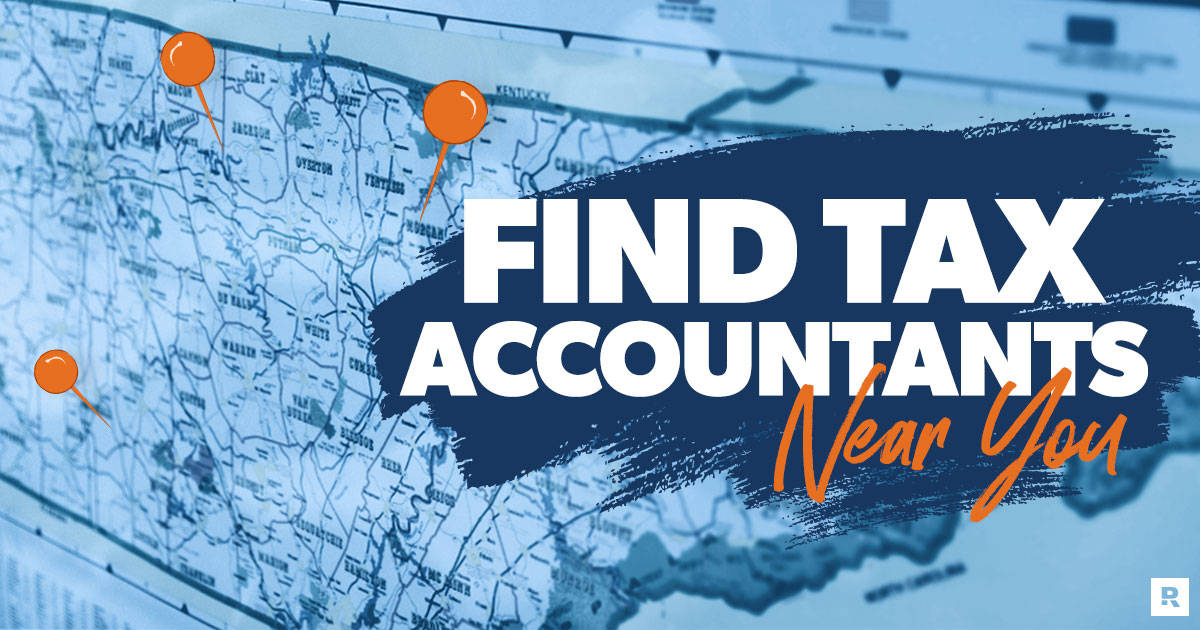Running your own business can start off like being a one-man band. In the early days, maybe it’s just you up there doing everything. It’s the business equivalent of a singer-songwriter paying their dues at an open mic night.
But as you start having some success, you play bigger and bigger venues, and it makes sense to start putting a band together. And when the band gets big enough, you need to get someone to keep track of T-shirt sales and make sure the promoter’s checks clear.
And let’s face it, when it comes to business, you are a rock star. But even rock stars have to pay taxes, and sometimes it’s a good idea to get a tax accountant.
So, how do you find a good tax accountant? And what makes them good? Let’s take a look!
What Is a Tax Accountant?
A tax accountant is a professional who can help you calculate what you owe in federal, state and local taxes, prepare and file tax returns, and advise you on anything that has to do with your business and taxes. These guys and gals are so experienced in all things taxes that they can probably recite the tax code in their sleep—they are that good!
What Does a Tax Accountant Do?
A really good tax accountant can help you avoid getting in hot water with the IRS and keep you in line with tax laws. But they also have a particular set of skills that can help take some of the stress out of the day-to-day hustle and bustle of running a business.
Get expert money advice to reach your money goals faster!
Here are the three main things a tax accountant can do to help you and your business:
Manage Payroll and Bookkeeping
Tax accountants take care of some of the administrative tasks that business owners don’t want to do—things like calculating payroll taxes for your employees and keeping up with sales tax changes for each of your products. That way, you can focus on growing your business and serving your customers!
Provide Expert Tax Guidance
Taxes are already tricky enough as it is, and they can get even trickier for small businesses. It can get real confusing when you factor in new tax laws and start thinking about how business decisions will affect next year’s taxes.
The good news is, a trustworthy tax accountant can keep you up to date with any changes to tax laws and provide you with advice year-round so you can run your business with confidence.
Help You File Your Taxes
Most small businesses are required to file quarterly taxes, and if you’re not careful, those deadlines can sneak up on you really fast! A tax accountant who’s on top of things will keep you on track—that way, you won’t get in trouble with Uncle Sam for missing filing deadlines.
How to Find the Right Tax Accountant
Finding the right tax accountant is important to the success of your business, so you want to make sure you do it right. You need someone who knows the tax code and can explain it to you.
After all, it’s your business, and you’re ultimately responsible for whether you turn a healthy profit or end up in court fighting a tax lien.
Here are some good ways to find a tax accountant:
1. Make a list of potential tax accountants.
You don’t want to just hire the first accountant you talk with! Try to find three to four potential accountants who serve your area to talk with before making your final decision.
Our Endorsed Local Providers (ELP) program is the perfect place to start. We can help you find RamseyTrusted tax accountants who serve your area in just a few minutes. These are the only tax pros trusted by financial expert Dave Ramsey and the Ramsey team, and they are mentored by our coaches to make sure they’re upholding our high standards of customer service.
You can also ask family, friends and colleagues for referrals or check with your state or national associations to find more candidates to interview during your search.
2. Look for the right credentials.
When you search for a tax accountant online, check out their credentials. Look for a Certified Public Accountant (CPA), a licensed tax attorney or an Enrolled Agent (EA).
When you interview prospective accountants, make sure they have a preparer tax identification number (PTIN). They’re going to be preparing your taxes, and the IRS requires their PTIN on your return.
3. Ask about their experience and specialization.
Would you want to get a root canal from a dentist who just started operating on patients last week? We didn’t think so. Whether it’s dental work or tax compliance, you want someone who knows what the flip they’re doing!
Don’t be afraid to ask tax accountants how long they’ve been in the tax business. You definitely want someone who’s been in business for at least two years.
You’ll also want to ask if there any particular tax issues they specialize in. If you know you’re going to be audited, for example, make sure you get someone who has experience dealing with audits and the IRS.
4. Make sure they e-file.
The IRS requires tax preparers who expect to file 11 or more returns during any given calendar year to file those returns electronically.1 If your preparer doesn’t e-file, then it’s a good bet they aren’t doing as much tax preparation as you would expect for someone claiming to be a full-time tax accountant.
5. Compare their costs.
Tax accountants usually have different fee structures, so don’t be shy about asking how they’ll charge you for their services.
Some accountants might charge you based on how complex your return is or the type of tax services needed to help your business. Others might have flat fees for every tax form needed to file your return. Either way, it’s important to understand what you’re paying for and why.
6. Get someone who will have your back.
If you get audited, you’ll want a tax professional in your corner. CPAs, tax attorneys with PTINs, and Enrolled Agents can represent you in front of the IRS if there’s an audit, an appeal, or a payment or collection issue.
You’ll also want to make sure they’re available when it’s not tax season and will answer the phone or see you in person if you need their advice or help. The last thing you want is someone who’ll end up ghosting you after you file your return.

Questions to Ask Your Tax Accountant
While you’re going through this process of finding the right tax accountant for you and your business, it’s important to make sure you ask the right questions. That way, you can get a clear understanding of their experience and how they do business!
- Does your office do all the work in-house or do you outsource some or all of it? You want to know who you’ll be dealing with and make sure they’re communicating clearly.
- How long will it take? Ask for a ballpark estimate of how long it’ll take to prepare your taxes. If they have lots of other clients, find out where you are on the list.
- How much are your fees? Can I get that in writing? Get a written estimate of how much it’ll cost to prepare your returns.
- Will you share my info with third parties? What is their privacy policy? If you don’t want a bunch of unsolicited marketing emails, make sure they aren’t selling your info to a marketing company. It’s legal for them to do that, but they should explain why and get your permission first.
- Am I paying too much, too little or just the right amount when I pay my quarterly taxes? You want to be like Goldilocks here and find the amount that’s just right. If you’re getting a huge refund or paying penalties at the end of the year, you need to find out how much you should be paying each quarter.
- Can I speak with some of your other small-business clients? If you want to find out the good, the bad and the ugly about a tax accountant, there’s no better person to ask than a fellow small-business owner who has worked with that accountant.
Why You Need a Tax Accountant
At the end of the day, your specialty is running a business. You’re passionate about it, and you’re really good at it. But the government wants its cut, so you have to pay your taxes. Do you have the time and energy to keep track of changes to the tax code? Do you have time to sift through your receipts and figure out which business expenses count as deductions and which ones don’t?
Probably not! You’re focused on serving your customers and disrupting the market. Your customers come to you because you’re an expert at providing the services they need and solving their problems. So, it only makes sense to turn to an expert for help with your small-business taxes.
How to Really Find a Great Tax Accountant
How many hours do you lose each year keeping books and stressing over taxes? That’s time you could spend improving your products, taking care of your customers, or developing employees.
Our small-business tax pros are here to let you focus on growing your business and being an all-around rock star for your customers.



